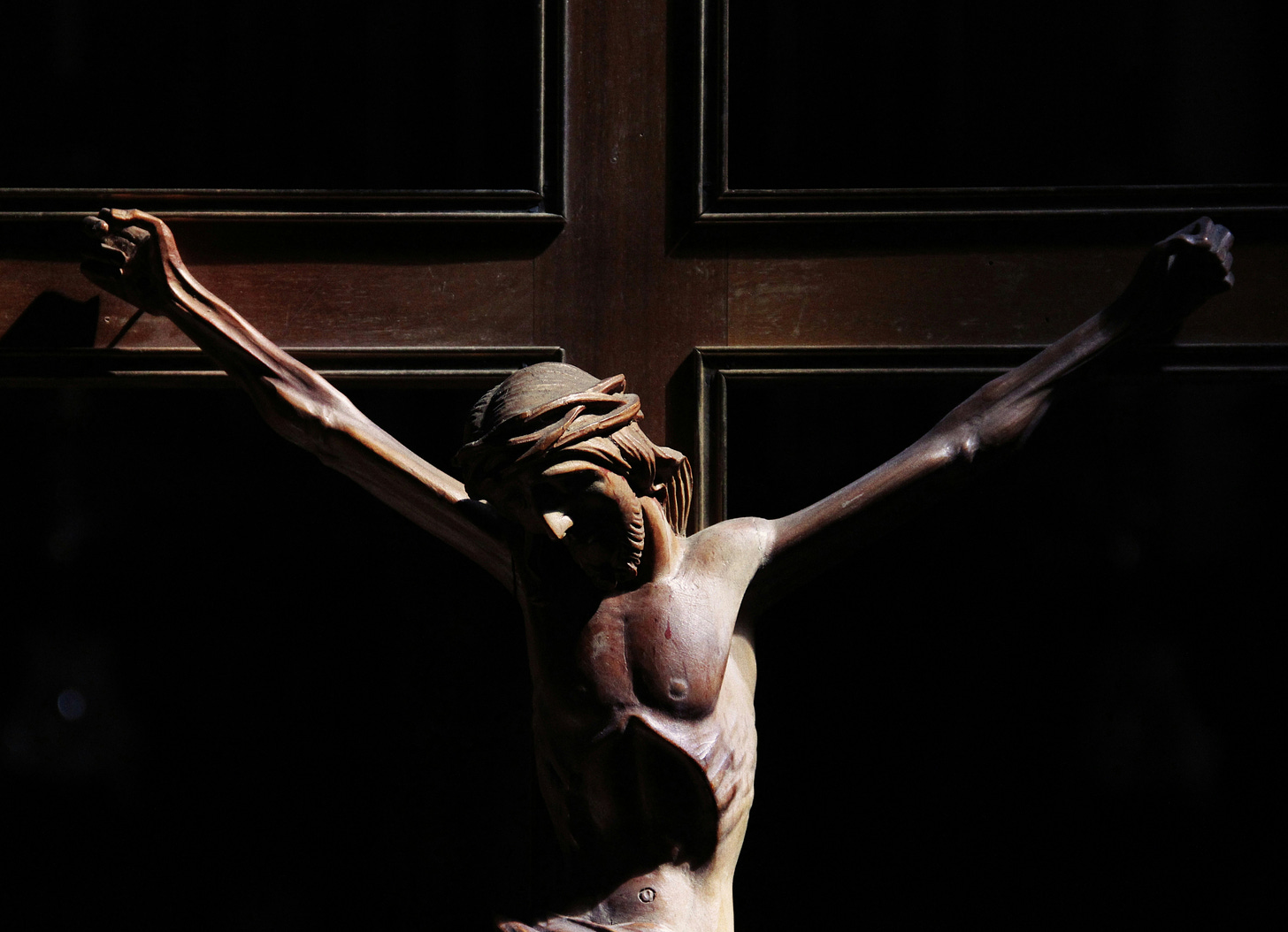the cross and the nature of judgement
is the cross as a symbol of judgement a helpful framing for taking action towards justice?

Good Friday is a day of paradox. The central image of this day—the cross of Christ—exemplifies this. An instrument of imperial torture and punishment is now the symbol of redemption and salvation.
In a podcast interview with The Hopeful Activists around this time last year, I was asked a fascinating question related to this: Is the cross as a symbol of judgment a helpful framing for people taking action for justice?
Discussing Christ’s crucifixion and, even more, how exactly his death leads to the redemption of the world, is a weighty topic. Therefore, in examining this relationship between judgment and justice, I wanted to take great care in my initial reply, and also continue this care into what I share below.
To begin, I suggested that answering this question requires that we first examine what is actually happening at the cross on Friday.
Like most Christians today, I grew up only knowing what is defined as the “penal substitutionary account of atonement” (PSAA). In short, this account positions God as a divine judge that we have offended (wronged) by our sin, and Christ as the one who bears our punishment (of death) on our behalf, thus accomplishing salvation.
Many songs Christians sing on Good Friday affirm this:
“Jesus paid it all, all to him I owe.” (Jesus Paid It All)
…
“Though my sins condemn me, Jesus died instead” (At the Cross of Jesus)
…
“What cause have I to dread? God’s daunting law Christ mastered in my stead.” (His Robes for Mine)
…
“The Innocent judged guilty, while the guilty one walks free, death would be His portion, and our portion liberty.” (The Passion)
My primary concern with a PSAA, or any account of atonement that suggests God’s wrath is appeased by Jesus’ death, is that God needed or even desired the death of Jesus before offering salvation. This transactional account of salvation frames God as ruthless, vengeful, and bloodthirsty. Not only has God created a system in which violence is the only path to salvation, but God also sanctions the gruesome torture of His eternal Son to achieve the potential of this salvation.
How, then, did such a theory of atonement become so widely accepted? Chelsea King suggests in a Syndicate essay that this is because a PSAA is a very logical understanding of salvation. “But,” she concludes, “that is precisely its problem.”
This leads to my second concern: this PSAA imposes our modern judicial systems and conceptions of forgiveness and justice on a biblical account. In other words, this theory imports features of our Western juridical experience into the expression of God’s good and redemptive purposes: there is a courtroom, a judge, and a verdit. The transaction of Jesus taking our punishment—the guilty verdict laid against us—makes sense in this paradigm.
To be clear, though, interogating PSAA is not the same as suggesting that we must wholly reject the presence of judgment, wrath, or sacrifice. I think one of the greatest strengths of Christian theology, especially as it relates to soteriology, is the presence of judgment and sacrifice in a system of salvation and redemption. The Scriptures make clear, I believe, that judgment on both a creaturely and cosmic level is a fundamental action of God. God is a judge, but perhaps not in the way that we commonly imagine.
We can see this on the ground as well. The cross as a symbol of judgment has been a longstanding source of hope for many marginalized and disenfranchised communities throughout history. God’s promise of judgment against evildoers reminded the enslaved, the discriminated, the victim, and the heavy laden that despite the oppressive and unjust actions and systems in our world justice exists at a cosmic level.
Any meaningful account of justice must include an element of judgment and consequence for those who perpetuate injustice.
However, we need to dig deeper into the nature of this punishment. Does the primary nature of God’s judgment lay in God’s identity as an offended party or in God’s position as the divine upholder of justice?
I think it is the latter. God judges not as an injured party pursuing a return on her losses, but as a ruler upholding what is good for God’s creation.
However, we must still go a step further.
If God’s divine judgment and punishment are driven by God’s upholding of justice and goodness, then God’s ultimate purpose in the world is not punitive, it is restorative. If a theological doctrine or theory concludes that God’s final and greatest action in this world is punishment and not redemption, then we have every reason to be skeptical of the theological system as a whole.
As I wrote last year on Good Friday, everything that Christ merits on the cross is for us. Following John Calvin, I explained how Christ, being God, has nothing to merit in and of himself. Christ has all he needs as it relates to his divine relationship with the Father. And yet, because Jesus is God, he alone is the only entity capable of receiving any divine merit.
Returning to the initial question, I believe that, as Christians, when we think about seeking justice in our world today, we must hold together these two realities—that all we have is received from Christ and that for those who perpetrate evil and injustice in our world, there is judgment.
As we pursue justice in the world, we must follow the example of God who does not punish punitively but seeks to bring forth goodness, love, justice, and righteousness in the world.
What remains for us on Good Friday is an opportunity—an invitation—to participate in what Christ accomplished in human flesh, imitating Christ's obedience and attention to God’s divine work of redemption in the world today. As we follow in the way of Jesus by the Spirit, we are united with Christ and share in the Life (John 11:25) which Jesus obtained in the passion and, on Sunday, through the resurrection.






Love this! Very insightful, Amar!